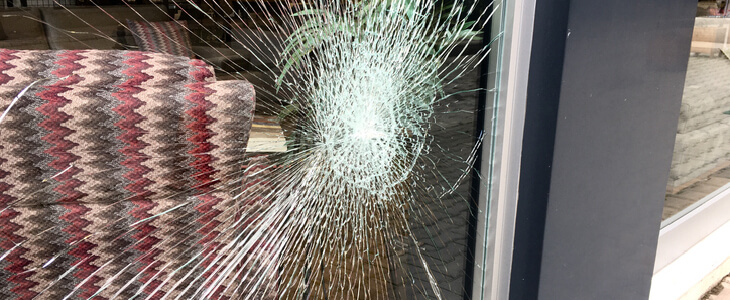
In the District of Columbia, Northern Virginia, and Maryland, the crime of criminal mischief, commonly called vandalism, involves the intentional and malicious destruction of someone else’s property. Vandalism can be punished as a misdemeanor or felony, depending on how much damage the defendant allegedly caused.
Retaining an inexperienced defense attorney with specific knowledge and insight into this crime can significantly impact your legal defense. If you have been charged with criminal mischief in Northern Virginia, contact Surovell Isaacs & Levy PLC today to schedule a free case evaluation.
Destruction of Property Charges in Virginia
Destruction of property is a crime in Virginia. Virginia courts punish the intentional destruction, damage, defacing, and removal of a property that belongs to another person. In most cases, regardless of the type of property a defendant allegedly destroys, the criminal offense will be classified as a misdemeanor or a felony based on the property’s value.
Destruction of property doesn’t have anything to do with stealing property. Stealing property, also called larceny, is punished as a separate crime in Virginia. Multiple criminal statutes address criminal mischief/destruction of properties, specifically:
- Section 18.2-162, Damage or trespass to public services or utilities
- Section 18.2-140, Destruction of trees, shrubs, etc.;
- Section 18.2-135, Destruction of posted signs of another
- Section 15.2-1812.2, Willful and malicious damage to or defacement of public or private facilities
The Penalties for Criminal Mischief and Vandalism Can Be Serious
Under Virginia law 18.2-137, vandalism is considered a Class 6 felony when the value of property damage is $1,000 or higher. When the damage to the property was not intentional, destruction of property is typically classified as a class 3 misdemeanor. When the damage is intentional, but the value is under $1,000, vandalism is charged as a Class 1 misdemeanor. When a defendant pleads guilty to or is convicted of a class 1 misdemeanor for criminal mischief, the court usually orders him or her to pay restitution to the victim.
Many people assume that vandalism is not a very serious charge. However, you will still have a criminal record if you were charged with a class 3 misdemeanor for vandalism that wasn’t intentional. Your record could harm your employment prospects and housing opportunities and affect your personal relationships.
Penalties for a Class 6 Felony Charge in Virginia
In Virginia, when the property damage exceeds $1,000, and the vandalism was intentional, you can be convicted of a Class 6 felony that is much more serious. You will face a fine of up to $2,500 and a prison sentence between 1 and 5 years if convicted. It will be up to the court’s discretion to order restitution for the current market value of the damaged property, which could cost you thousands of dollars.
Determining the Value of the Damaged Property in a Criminal Mischief Case
The court overseeing the case must determine the value of damage to the property’s destruction, defacing, damage, or removal. The court will establish the value of the damage by proving the fair-market cost of repair or the fair-market replacement value. Witnesses will have the opportunity to testify in court regarding the property’s value. A judge may consider witness testimony sufficient to determine the value of the damage.
Destruction of Property Charges in D.C.
Many Northern Virginia residents live or work in Washington, DC. You could be charged under the D.C. criminal code if the alleged incident occurred in Washington, DC. According to D.C. Code § 22–303, criminal mischief occurs when a person “maliciously injures or breaks or destroys, or attempts to injure or break or destroy, by fire or otherwise, any public or private property, whether real or personal, not his or her own.” When the value of the damaged property is over $1,000, the defendant can be fined up to $5,000 and or in prison for up to 10 years. If a value is under $1,000, the defendant can be fined up to $1,000 and sentenced to 180 days in jail.
Common Defenses to Criminal Mischief Charges in Virginia
Proving destruction of property charges isn’t easy. Prosecutors must prove that you maliciously destroyed or otherwise damaged another person or entity’s property. In other words, they have to prove that you had criminal intent. They also need to prove that when the alleged incident occurred, you acted with a specific disregard for a known and substantial risk of the harm the statute intended to prevent. Prosecutors need to prove all of the following elements beyond a reasonable doubt:
- You are the one who destroyed or attempted to destroy the property
- The property did not belong to you
- You voluntarily and on purpose caused the damage, and
- There was some loss in the value of the property
When you work with the experienced criminal defense attorneys at Surovell Isaacs & Levy PLC, we will immediately begin investigating your case. We will poke holes in the prosecution’s case by providing evidence that they cannot prove all of these elements. Perhaps the property damage occurred because of a mistake or accident, not because you intentionally and maliciously wanted to damage the property. When prosecutors cannot prove all of the elements of the crime, they cannot convict you. After investigating your case and gathering evidence, we will challenge every element of the case using the circumstances and facts unique to your case.
Discuss Your Case with a Criminal Defense Attorney in Northern Virginia Today
Criminal mischief charges can carry jail time, so it’s essential we reach out to an attorney if you are facing a criminal mischief charge. The experienced criminal defense attorneys at Surovell Isaacs & Levy PLC are prepared to provide you with a strong legal defense. We have a proven track record of obtaining the best possible outcomes for our clients. Contact Surovell Isaacs & Levy PLC today to schedule an initial case evaluation.
